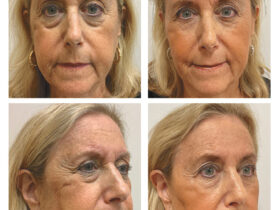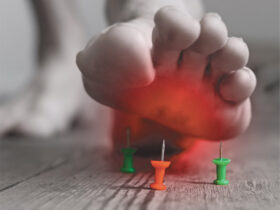By Michael Shriver, MD – Proscan Imaging NCH Partner
Cardiovascular disease is the leading cause of mortality and morbidity in the United States and is often a result of coronary artery disease (CAD) that reduces cardiac blood flow and myocardial function. Risk factors for CAD are rampant among our society, including hypertension, smoking, diabetes mellitus, hyperlipidemia, and family history, to name a few. CAD alone accounts for approximately 600,000 deaths annually, about 1 in 4 deaths in the United States. Healthcare services for CAD are estimated to cost more than 200 billion dollars annually, often associated with the high costs of intensive and critical care needed for patients who suffer from myocardial infarctions.
The current gold standard for the diagnosis and treatment of CAD is invasive coronary angiography, however it is associated with procedural risks and complications due to its invasive nature. As well, 20-40% of all diagnostic invasive coronary angiography procedures are performed without any interventional procedures being applied such as angioplasty and stenting. This highlights the need for a non-invasive diagnostic modality for CAD assessment.
Nuclear medicine has played a critical role in the noninvasive assessment of myocardial perfusion. Single-photon emission computed tomography (SPECT) is a widely used diagnostic imaging test for the diagnosis and quantification of myocardial ischemia. Through the use of various tracers, most commonly today technetium 99m sestamibi, myocardial perfusion is assessed at both rest and stress, which typically takes 3 to 4 hours to perform. While this modality has been the mainstay of myocardial perfusion imaging, it is often limited by artifacts such as diaphragmatic, chest wall, and breast attenuation, along with motion artifact. The false positive rate of SPECT myocardial perfusion imaging has been reported in up to 50% of cases in some published articles. A meta-analysis by Moudi, et al. in 2011 found a sensitivity of 82%, specificity of 76%, and accuracy of 83%.
These limitations of SPECT myocardial perfusion imaging highlighted the necessity for a new, more accurate imaging modality for the diagnosis of myocardial ischemia. In that same meta-analysis study as referenced above, cardiac PET myocardial perfusion imaging demonstrated a sensitivity of 91%,
specificity of 89%, and accuracy of 89% for the diagnosis of coronary artery stenosis greater than 50%.
PET stands for positron emission tomography and utilizes different radiotracers than SPECT imaging that have a higher energy and ability to be localized with more precision and accuracy. The most commonly used PET tracer for myocardial perfusion imaging is Rubidium-82 (Rb). Rb-82 is an analogue of potassium ion and localizes to cells utilizing the sodium-potassium transcellular ion pump. These pumps are rampant among myocardial cells, and its localization to the myocardium is directly proportional to myocardial blood flow.
Cardiac PET is also acquired at both rest and stress to adequately assess for myocardial ischemia. A generator that produces Rb-82 tracer is located directly adjacent to the PET scanner. Rest imaging is initially acquired, which is then subsequently followed by stress imaging. Stress conditions for the heart are performed with the administration of regadenoson while the patient is lying on the PET/CT scanner, followed by a second dose of Rb-82 tracer. In its entirety, the protocol for rest and stress PET myocardial perfusion only takes approximately 20 to 30 minutes, starkly different from a SPECT protocol that takes 3 to 4 hours. As well, the imaging acquired by the PET/CT is of higher resolution, precision, and accuracy with minimal to no artifactual degradation. In comparison to SPECT imaging, the diagnostic images of PET are far superior and easier to consistently interpret on the part of the interpreting cardiologist or nuclear medicine physician.
In addition to improved perfusion assessment, cardiac PET also provides other benefits beyond SPECT. The increased accuracy of gated cardiac imaging allows PET to provide accurate and precise ejection fractions, with strong correlation between PET ejection fraction assessment and other modalities such as cardiac MRI (r value ~0.9).
The most important additional diagnostic data from cardiac PET is arguably myocardial flow reserve assessment. This allows for the absolute quantification of myocardial blood flow and facilitates the assessment of multivessel CAD, but also allows for the assessment of coronary microvascular disease. This assessment of microvascular disease can accurately identify the precursors to flow-limiting coronary artery disease, allowing the cardiologist to institute and monitor responses to medical therapy for patients at risk of developing significant CAD. These techniques can also be used for the assessment of graft function after heart transplant.
Overall, cardiac PET is more accurate, sensitive, and specific in the assessment of myocardial perfusion, offering cardiologists and patients a better option for the diagnosis of CAD. This newer, more advanced technique will benefit patients for years to come with its superior ability to provide insight for the correct management of cardiovascular disease related to CAD.
Dr. Michael Shriver is board eligible by the American College of Radiology and Board Certified by the American Board of Nuclear Medicine. He completed an Integrated Nuclear Radiology Fellowship and Neuroradiology Fellowship at the Hospital of the University of Pennsylvania in Philadelphia. His diagnostic radiology residency was also completed at Penn. Dr. Shriver completed medical school at Case Western Reserve University School of Medicine, Cleveland, OH, and an Internal Medicine Internship at Cleveland Clinic.
Dr. Shriver has relocated to Naples with his wife, Stacy and daughter, Lily. He is excited to add his expertise and experience to the most qualified Radiology services team in the Southwest Florida Region. Our team of talented physicians, caring and professional technologists, and advanced imaging equipment provide our patients with the highest quality of care.
PROSCAN Imaging
For more information or to schedule an appointment, call 239-624-4443. proscan.com









